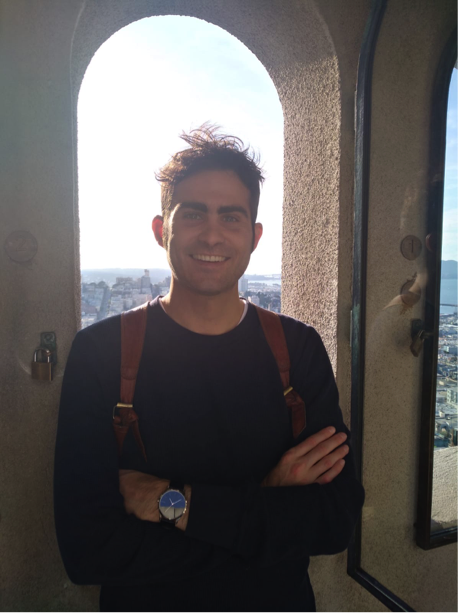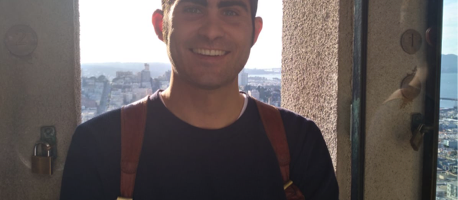Fadji Maina and Maryna Bilokur
Words Andrew Lives By: “Whatever happens, happens.”
Andrew’s journey to Berkeley Lab

Born in Hayward, CA and raised in Georgetown, KY, Andrew received his Ph.D. in inorganic chemistry from the University of Louisville in 2017. His first interest in science arose in elementary school when he performed an experiment on measuring the amount of heat energy released by burning different nuts. He was also an active member of his high school Science Olympiad Team where he learned that science was not only interesting but fun! It was further enforced during his time doing undergraduate research on sulfur alkylation and de-alkylation reactions. Passionate about water-related issues, Andrew joined the Lab as an ITRI Rosenfeld fellow in 2017 to work on remediation of fluoride contaminated water using chemically modified natural products. After, his fellowship, he joined Robert Kostecki’s group to further research on desalination technologies using solar energy combined with thermally responsive materials.
Creating the next-generation electrochemical methods for desalination
He says: “given all the water-related issues that our world is facing today, water, is one of the most important research areas of the 21stcentury”. Andrew wants to use electrochemistry to be able to create technologies that will not only reduce the amount of energy needed to produce freshwater but also make use of all our available water resources and close the water loop.
Oil companies, for example, produce more water than oil, yet this water remains unused because it is polluted with high concentrations of inorganic and organic salts. In the Energy Technologies Area, his work consists of developing new electrochemical and solar-based membrane methods for desalination as well as for remediation of pollutants to better reuse water produced by oil companies.

His next steps
Andrew is currently applying for jobs in academia in the US. He says: “Academia allows me to explore new ideas and never work on the same thing every day”.
As a chemist, he has many fascinating questions he would like to answer such as understanding how to electrochemically produce ammonia using only air and water. However, no matter how many problems he would want to solve, Andrew aims to have a good work-life balance (e.g. coming back home at reasonable hours as often as possible and being a good partner/father when that time comes), something he learned from his Dad, a professor in business who always makes time for his family despite his busy schedule.
His role model in Science
One of the biggest Andrew’s role models among scientists is his Ph.D. advisor, Craig Grapperhaus, from whom he learned almost everything about conducting lab-work, writing grants and papers, as well as how to run a group smoothly with integrity and respect. He also encouraged him to “not always listen to what your Ph.D. advisor says” ;).
One scientist he would like to meet (if he can go back in time…): Nikola Tesla
Advice for new postdocs
“Learn quickly how to work in big groups because collaboration is highly important at LBNL”.

